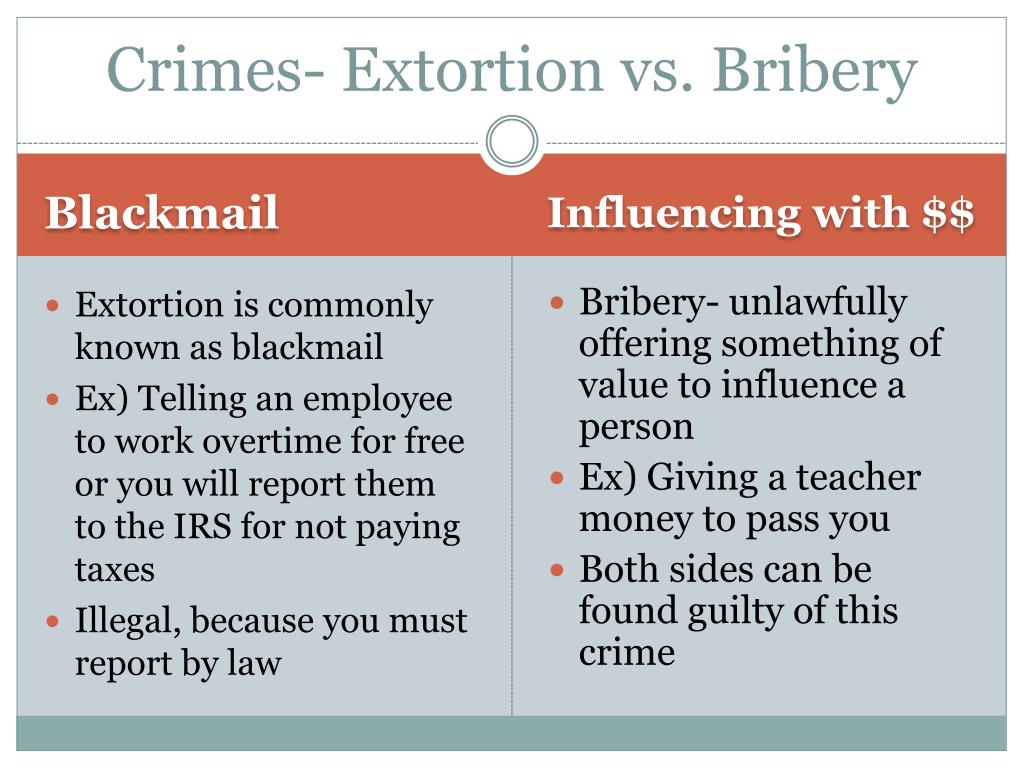

The important distinction for a federal blackmail charge is that the secret at issue relates to the violation of the law, which is a misdemeanor offense. “whoever, under a threat of informing, or as a consideration for not informing, against any violation of any law of the United States, demands or receives any money or valuable thing.”.§ 873 under a fairly short definition which describes it as: What is the Legal Definition of Blackmail?īlackmail under federal law is found at 18 U.S.C. Our Los Angeles criminal defense lawyers will review the laws more closely below. It is important to contact an experienced lawyer if you are facing a federal blackmail charge. While this is generally true, the federal crime of blackmail requires specific elements to be met, which will be discussed in detail in the following text. The term blackmail is often used in many contexts, but most typically involves someone knowing a secret about someone else and wanting something to stay quiet about it.

§ 873 lays out legal penalties for a someone who demands or receives money, or anything of value, made under threats of informing, or for not informing, which violates federal laws. Put simply, blackmail and extortion is the illegal conduct of demanding money from someone to not report something, such as potentially embarrassing information about the person, or even criminal behavior.ġ8 U.S.C. The Act defines extortion as “the obtaining of property from another, with his or her consent, induced by wrongful use of actual or threatened force, violence, or fear, or under color of official right”.The federal crime of blackmail normally involves threats to do some act that will harm the victim. federal law that prohibits actual or attempted robbery or extortion affecting interstate or foreign commerce. Corruption involves the persuasion of legislators and is a separate crime from extortion. Robbery is the crime of taking another’s possessions by the use of force. The crime of extortion is different from crimes of robbery or corruption. A person shall be imprisoned for not more than three years or fined or both if the person receiving the proceeds has knowledge that it is unlawfully obtained. Generally, receiving proceeds of extortion is punishable by imprisonment for more than one year. Blackmail is extortion by threatening another person with the disclosure of harmful or secret information that would damage that person’s reputation if released. Accepting a bribe also constitutes a crime. Bribery is the crime of giving something of value to influence the conduct of a person, who is generally a public official. The two most obvious types of extortion are bribery and blackmail. Threats to do bodily injury, threats to expose harmful information, threats to accuse the victim of a crime are just a few examples for extortion. Extortion is a criminal offense whereby the defendant illegally gains property or funds through threats, bribes, or character defamation.


 0 kommentar(er)
0 kommentar(er)
